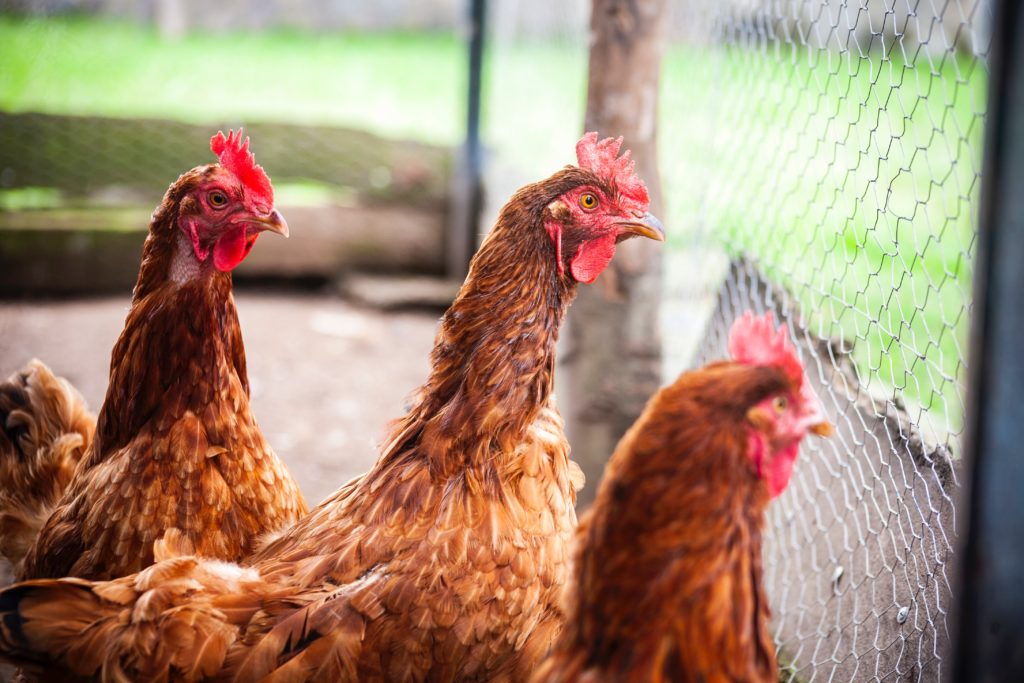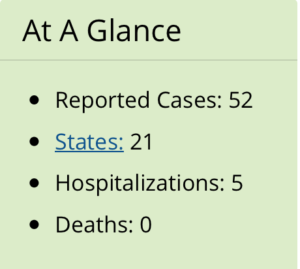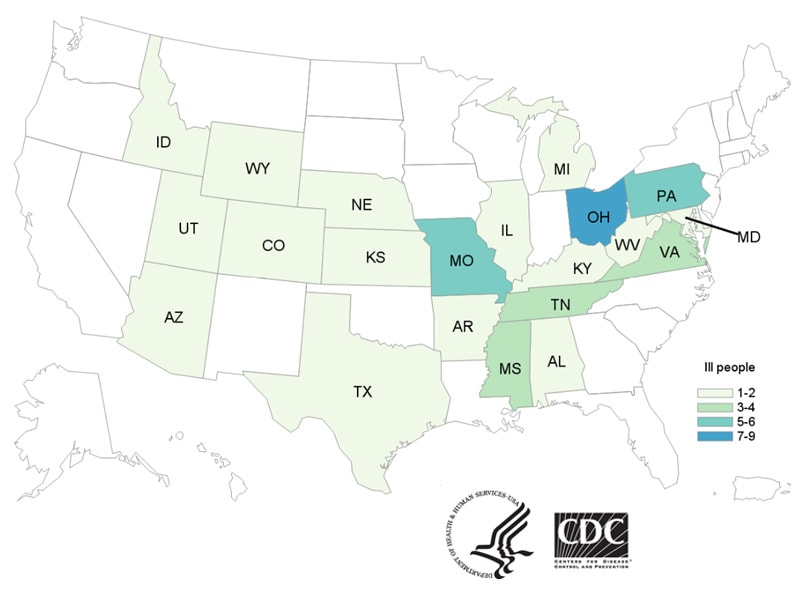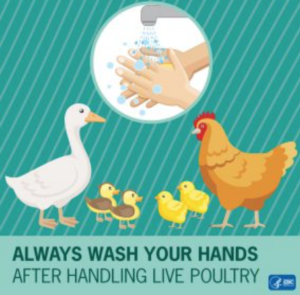All fields are required
Posted in Our Blog,Outbreaks & Recalls,Salmonella on May 16, 2019

The concept of a backyard flock, or raising chickens on your own property for eggs or meat, is increasing in popularity. Who doesn’t like fresh eggs? What better way to know where your food comes from than to raise it yourself? Well, the problem is that the trend of having a backyard flock is becoming a big issue when it comes to Salmonella illnesses. Yet again, we have another Backyard Poultry Salmonella Outbreak.
For those of you who have been watching, we seem to have a new outbreak of Salmonella illnesses linked to backyard birds every year. This year, the CDC reports that:

For a breakdown of illnesses by state:
| State | Ill People |
|---|---|
| Alabama | 2 |
| Arizona | 1 |
| Arkansas | 2 |
| Colorado | 2 |
| Idaho | 1 |
| Illinois | 2 |
| Kansas | 2 |
| Kentucky | 1 |
| Maryland | 1 |
| Michigan | 1 |
| Mississippi | 3 |
| Missouri | 6 |
| Nebraska | 1 |
| Ohio | 9 |
| Pennsylvania | 5 |
| Tennessee | 4 |
| Texas | 2 |
| Utah | 1 |
| Virginia | 4 |
| West Virginia | 1 |
| Wyoming | 1 |
| Total | 52 |
Or maybe a visual is better?

The CDC confirmed that those who were sick reported to have purchased chicks and ducklings from several sources, including agricultural stores, websites, and hatcheries. Epidemiologic and laboratory evidence by the health agencies indicate that “contact with backyard poultry (such as chicks and ducklings) from multiple hatcheries is the likely source of these outbreaks.”
Do you think you have become ill from your backyard chickens? Here are some symptoms to look for:
Most people infected with Salmonella develop symptoms between 12 to 72 hours after being exposed to the bacteria.
A stool sample is used to determine if you have Salmonella, and you should contact a healthcare provider immediately if you think you have contracted the illness.
What are the Health Risks of Keeping Backyard Poultry?
Backyard poultry, such as chickens, quail, and ducks, carry a host of germs harmful to humans. You can’t see them, but they can harm you – even if they do not harm the animal. These germs are found in the droppings as well as on the bird itself and may cause illness ranging anywhere from minor skin infections to more life-threatening illnesses that can cause death. Common diseases that can be transmitted from birds to people include: Avian Influenza (Bird Flu), Botulism (from Clostridium botulinum), Camplyobacteriosis (from Campylobacter spp.), E. coli (known as Escherichia coli 0157:H7), Salmonellosis (from Salmonella ssp.), and West Nile Virus to name a few. Don’t let yourself or your family be host to these terrible guests! Safe poultry keeping practices are highly recommended.
What Can I Do to Keep My Family Safe During a Backyard Poultry Salmonella Outbreak?
After contact with birds or bird droppings, such as cleaning out the coop, feeding the birds, collecting eggs, or socializing with them, it is very important to wash your hands with running water and soap. This is the most important thing you can do for your overall health outside of the backyard flock and even more important when dealing with known germ carriers.
Always supervise children when they have contact with the birds, the coop, or any tools you use with the birds or the coop. Children often put things in their mouths and do not always understand the dangers. Something simple as touching an egg or a bird and then later putting their hands in their mouths could cause illness. Also pay attention to whether you have had the birds against your clothing. Contaminated clothing will need to be changed so keep the germs from spreading throughout your home.
The CDC has its own advice for backyard poultry keepers, especially during this Backyard Poultry Salmonella Outbreak, as follows:
“People can get sick with Salmonella infections from touching backyard poultry or their environment. These birds can be carrying Salmonella bacteria but appear healthy and clean and show no signs of illness. Follow these tips to stay healthy with your backyard flock:

As always, if you have been in contact with live poultry and are showing the telltale symptoms of a Salmonella infection, urgent medical attention is recommended.
By: Candess Zona-Mendola, Editor (Non-Lawyer)